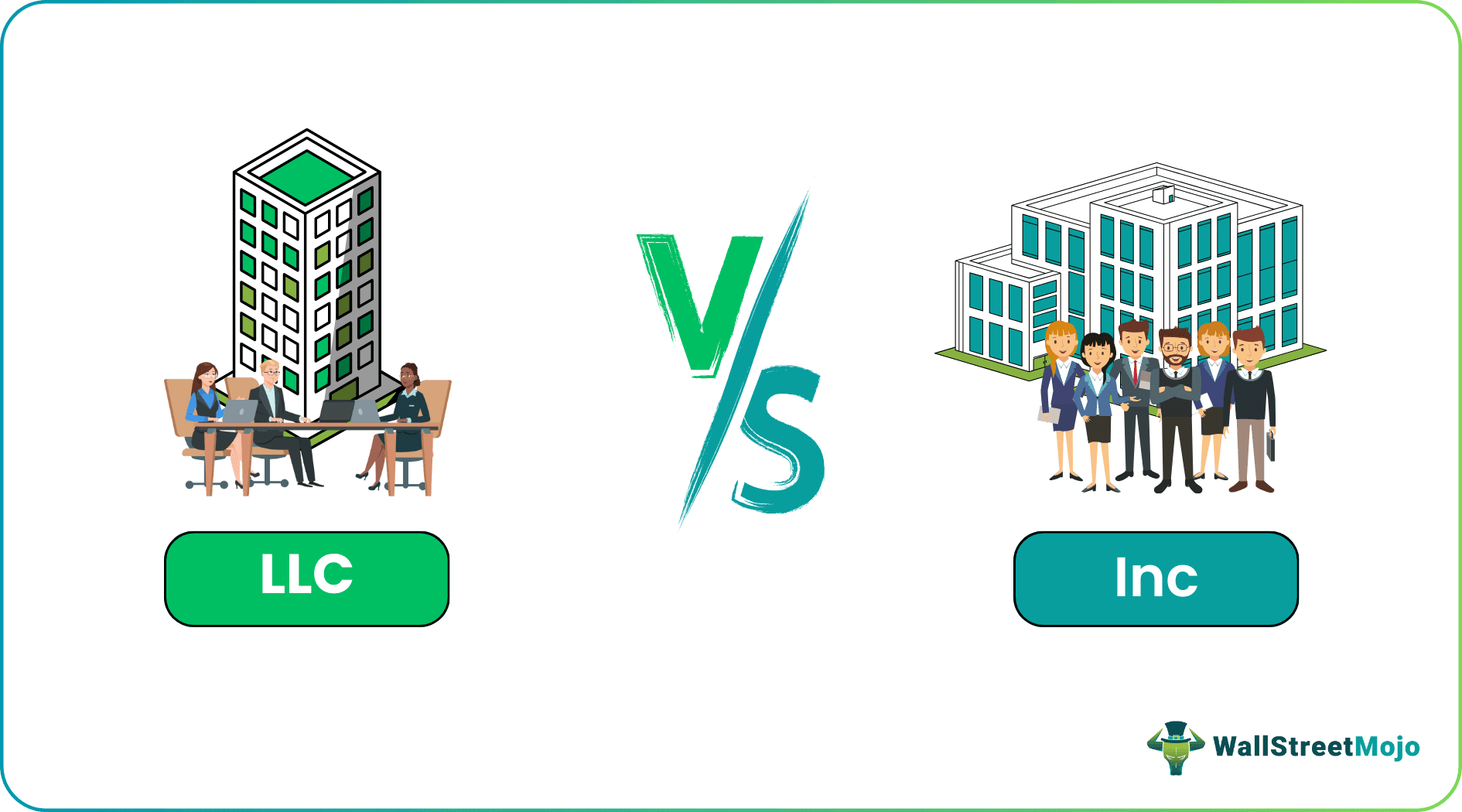Table Of Contents
Difference Between LLC and Inc (Corporation)
LLC is owned by its members requiring less paperwork and legal formalities, which is not perpetual and is taxed on a single taxation basis. In contrast, Inc is owned by its shareholders requiring much more legal formalities and paperwork because it is a completely separate legal entity with perpetuity as its core assumption. Double taxation is applied as the size of these corporations is much larger.
So, you have decided to go from sole-proprietorship to something more recognized. Since you’ve been bombarded with so much information, you're not able to decide what the right thing to do is? To go for LLC (Limited Liability Company) or stick with a corporation.
Well, in this article, we will break down the difference between LLC vs. Inc so that you can easily decide what you should do. The first thing you need to think about is your vision. Do you want to have a full-fledged public company that will serve thousands and thousands of customers? Do you want to issue shares to the public? Do you want to have more owners on board?

Depending on what you want, you should decide.
Let’s say you want more owners on board, and then you should go for LLC. However, LLC won't fit the bill if you aim to issue stocks shortly. It would be best if you choose a corporation. Ultimately the objective of forming a new entity will determine whether you should go for an LLC or Inc. If the objective doesn’t matter and you want a quick solution, the best bet would be an LLC. Why? Because forming an LLC will require less paperwork. That means you could save more time. Plus, you need to pay anything between $100 to $800 to file the articles of organizations with the State Secretary.
However, LLC has a major demerit. In LLC, the members must pay self-employment taxes on their salary/profits. On the other hand, Inc needs a prodigious amount of paperwork. Moreover, once you form an Inc, you need to go through a huge amount of record-keeping.
LLC vs Inc (Corporation) Infographics
Let’s see the top differences between LLC vs. Inc (Corporation).

Key Differences
- If you’re planning to create a giant company, a corporation can be the right choice for you. And for a small or mid-sized organization, LLC would be the right choice.
- If you want to form an LLC, you need less paperwork. On the other hand, forming a corporation requires a huge amount of paperwork.
- If you form an LLC, you won’t issue shares shortly. If you form a corporation, you will issue shares shortly.
- For LLC, there’s single taxation applicable. For a corporation, on the other hand, double taxation is applicable.
- In the case of an LLC, the entire ownership is owned by the members of the LLC. In the case of a corporation, the ownership lies with the shareholders, but the management manages everything.
LLC vs Inc Comparative Table
Final Thoughts
If you want to scale your business to a giant organization, a corporation would be the right choice. But if you want to form a quick, limited liability organization without much paperwork, then an LLC would be the perfect bet. You would also earn better flexibility in taxation in the case of an LLC.
LLC vs. Inc (Corporation)
| Basis for Comparison | LLC | Inc |
|---|---|---|
| 1. Perfect for | LLC is perfect for small & medium-sized businesses that have fewer shareholders. | Inc is perfect for large organizations (or organizations that plan to go big) |
| 2. Ownership | Members own all the ownership of an LLC. | Shareholders own the corporation altogether. |
| 3. Taxation | Single taxation is applied to LLC. Whatever the LLC makes, profits/losses are directly passed on to the members. | Double taxation is applied in the case of a corporation. Corporate taxation is applied to corporate income and then personal taxation is applied to personal income (dividends paid to shareholders). |
| 4. Separate entity | LLC and members are considered separate entities, but profits/salaries paid to members are taxable. | In the case of a corporation, the shareholders and the corporation are completely separate entities. |
| 5. Meetings | In the case of LLC, there’s no legal requirement for meetings. | In the case of a corporation, regular meetings are being conducted. |
| 6. Paperwork | To form an LLC, you need less paperwork. | To form a corporation, you need a prodigious amount of paperwork. |
| 7. Issuing shares | An LLC can’t issue shares.
| A corporation can issue shares shortly. |
| 8. Perpetuity | Death or withdrawal of a member or two affects an LLC. | Death or withdrawal of a shareholder or two doesn’t affect a corporation. |
